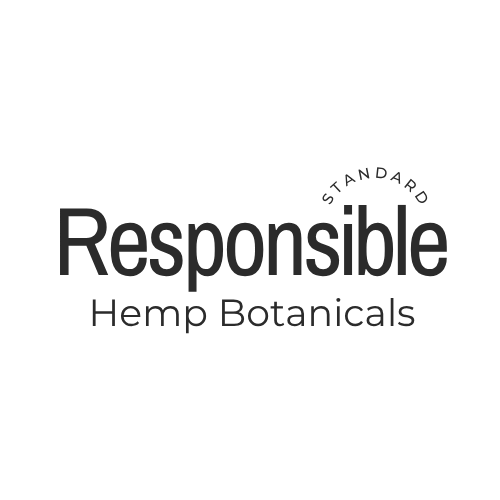Consumer Trust Starts with Verified Ingredients: An RHB Certification FAQ
The hemp industry is evolving quickly—from textiles and bio-based materials to cannabinoids, supplements, skincare, and functional beverages. With this rapid growth comes incredible opportunity—but also heightened scrutiny from consumers, retailers, and regulators.
One truth stands above the rest: trust is everything in the wellness industry. Consumers want to know the products they use are safe, authentic, and responsibly sourced. In such a crowded market, skipping certification can be a costly mistake.
To help clarify what certification means—and why the Responsible Hemp Botanicals (RHB) Standard is setting the bar for hemp-derived botanicals—we’ve put together this FAQ.
❓ Why does certification matter in hemp and botanical products?
Certification matters because it provides independent, third-party verification that a product meets defined standards.
Without certification, hemp-derived products often face questions:
Do the labels actually match what’s inside?
Are there hidden contaminants like pesticides or heavy metals?
Is the hemp truly from a legal, responsible source?
In an industry that has struggled with mislabeling, safety recalls, and inconsistent quality, certification helps cut through the noise. An RHB Certification seal tells consumers and retailers that the product has been vetted for trust, transparency, and traceability.
❓ What exactly is the RHB Standard?
The Responsible Hemp Botanicals (RHB) Standard is a global certification program built to ensure hemp-derived botanical products are safe, transparent, and trustworthy.
Unlike other more general certification prorams, RHB addresses the modern hemp economy and the specific needs of the hemp derived cannabinoid market.
At its core, the RHB Standard establishes:
Trust – Independent validation that products meet defined criteria.
Transparency – Clear, accurate communication about sourcing and content.
Traceability – Documentation that tracks ingredients from seed to shelf.
❓ How does RHB Certification actually work?
The certification process is designed to be rigorous but achievable, guiding brands through every step of verification:
Application – Brands begin by visiting the RHB Standard certification page and submitting an application through an approved certifying body.
Preparation – Companies can work with the RHB team to prepare documentation ahead of their audit with an approved certifying body.
Independent Verification – A third-party audit verifies that the supply chain, inputs, and labels meet RHB requirements.
Certification Seal – Once certified, brands earn the right to display the RHB seal on packaging and marketing.
Annual Renewal – Yearly audits ensure ongoing compliance, keeping the certification current and trustworthy.
❓ Who benefits from RHB Certification?
Certification delivers value to every corner of the hemp ecosystem:
Brands & Formulators – Gain a clear point of differentiation in a crowded market, with a recognized seal that resonates with consumers and retailers.
Suppliers & Ingredient Providers – Demonstrate responsible sourcing and transparency, strengthening B2B partnerships.
Retailers & Regulators – Reduce risk by carrying or approving products that meet defined safety and traceability standards.
Consumers – Get the assurance that products are clean, safe, and non-marijuana derived.
❓ How does certification help brands build trust?
Consumers are savvy. They’ve heard big promises before, and they’re cautious about new wellness products. Certification helps brands cut through skepticism by delivering:
Proven Integrity: RHB confirms that the product contains what the label claims—and nothing more.
Clarity & Honesty: Transparent labeling ensures consumers can make informed decisions.
Accountability: Independent audits create a system of checks and balances that builds lasting confidence.
A brand that carries the RHB Certification seal isn’t just telling customers to trust them—they’re showing the proof.
❓ What are some examples of certification in action?
Certification has proven its value in multiple industries. For example:
Food Safety: Grocery retailers often require third-party certifications like Safe Quality Food (SQF) or BRCGS before they’ll stock products. This reduces the risk of foodborne illness outbreaks and protects brand reputation.
Organic & Fair Trade: Consumers trust seals like USDA Organic or Fair Trade Certified because they know these programs independently verify compliance with strict standards.
The lesson: certification isn’t just an expense—it’s an investment in risk management and brand resilience.
❓ How can brands get started with RHB Certification?
Getting certified is a straightforward process designed to help, not hinder, your success:
Visit the RHB Standard website – Start at the Get Certified page .
Submit your application
Work with RHB audit support – Our team is available you prepare for independent verification with an approved certifying body.
Complete third-party audit – An approved certifying body conducts an audit.
Earn the RHB seal – Showcase your certification on packaging, marketing, and sales materials.
Maintain compliance annually – Annual audits ensure your products remain trusted and recognized.
The hemp wellness market is moving fast—but speed without integrity is a recipe for risk. Skipping certification may save money today, but it can cost brands dearly tomorrow in recalls, reputational damage, lost retail deals, and missed opportunities.
Certification through the Responsible Hemp Botanicals Standard provides a clear path forward. By prioritizing verified ingredients, transparent labeling, and independent oversight, brands can build credibility, earn consumer trust, and position themselves for long-term success in a global marketplace.
In the end, the strongest hemp brands won’t just promise quality—they’ll prove it. And they’ll do it with certification.
👉 Learn more and start your certification journey here: www.rhbstandard.com/get-certified

